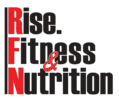The world of fitness advice can feel like a dense jungle, overflowing with conflicting information and quick fixes.
This week, I’d like to tackle a persistent myth and help you get rid of this bias: the idea that eating after 8pm makes you fat, in particular eating carbs after 8.

Have you ever encountered this advice and did you question its validity?
Unfortunately many people don’t, they just like and re-share a post accepting it as true and then contribute to spread it around. Before you restrict your evening meals, let me help reviewing why it is not worth it your time.

Alway Ask for the Source…and read it
Often, these kinds of claims are coming from unreliable sources, like social media posts, so-called facebook experts or fitness influencers with very questionable qualifications.
As this is a sensationalistic type of content – or a clickbait – it gets shared rapidly, often without verification. This creates a cycle of misinformation that can cause confusion and anxiety, especially if you just started your fat loss journey, are not entirely sure of your direction and you’re looking for help to get it right from the start.

To protect yourself from bullsh*t think critically! If someone tells you that something will ruin your progress, search or ask for evidence to back that claim up before buying their quick fix supplement/program.
Not everyone has malicious intents, of course, but one thing you can be sure of: if a claim sounds like a clickbait AND a product comes along with a reduced price tag then yes, it’s trash.

Beyond the Buzzword: Calories and Science Take Center Stage
Current scientific research doesn’t support the idea that eating after 8pm directly impacts fat loss.
You can find many “studies” online but when you go and read their details, well they look a bit poorly structured and with conclusions that are often misinterpreted or tailored to match the goal of the study. One example for all:
There is promising evidence that controlling the time of day meals are consumed can benefit those with existing obesity to aid with weight regulation although further research is needed to investigate this as a preventative dietary strategy in healthy weight individuals [source].
Therefore while there might be a connection between later eating and weight gain, more research with well-designed studies is needed to confirm a cause-and-effect relationship. The current evidence seems inconclusive.

What truly matters is your total calorie intake throughout the entire day. As long as you stay within your designated calorie limit, it doesn’t make a difference if you choose to have carbohydrates or a balanced meal after 8pm.
Sleep Quality might contribute to weight gain?
However, it looks like that meal timing can play a role in sleep quality (more on this here) as eating a heavy meal shortly before bed can disrupt your sleep cycle, leading to feelings of tiredness and sluggishness the next day.
Poor sleep, in turn, can trigger cravings for unhealthy, high-calorie foods, potentially throwing off your calorie goal.
So, when it comes to your evening meals, try focusing on portion control and choosing balanced options instead of being terrified that eating after 8pm makes you fat.

Can Intermittent Fasting Solve this?
Intermittent fasting is a popular dietary approach that often involves having eating windows from 12pm to 8pm followed by a fast for the rest of the hours.
While setting time limits for your meals can be a powerful tool, don’t forget the golden rule: calorie deficit is the key factor in achieving fat loss nonetheless.
Fasting for extended hours won’t magically burn fat if you’re still exceeding your daily calorie needs during the eating window.
Surely you don’t need any rEvOlUtIoNaRy fAsTiNg pRoGrAm wItH ThE SuPpLeMeNtS To mAkE YoU MeLt fAt fAsT FoR OnLy $19.99.
The Calorie King Reigns Supreme
Here’s the bottom line: to lose fat, you need to be in a calorie deficit end of the story. This translates in eating less calories than you consume. The timing of your meals doesn’t matter as long as your total daily intake stays within your target range.

Now, how you get to a sustainable calorie deficit range that depends on your lifestyle and your choices, if you’re curious to calculate your daily calories need, check my free calorie calculator here!
Consistency is your secret weapon – aim for an average calorie deficit over a week, not just on a single day and don’t panic if a last minute dinner with friends messes up your calories: enjoy and get back on track tomorrow.
If you’re wondering if you can have that slice of cake or pizza, the answer is here.
Beware of the Attractive Marketing Scams
I say this often but let me say this again: anyone pushing products or programs to you that promise magical and quick results based on “studies” is just trying to sell you something and get the money you work really hard to make.

Your Fat Loss Should be a Long Term and Sustainable Approach
A sustainable fat loss and healthier eating habits are more than just meal timing. Macronutrients (carbs, protein, fat) play a crucial role in your overall health and well-being.
However, for fat loss, prioritize staying within your calorie deficit. Listen to your body’s hunger cues, make informed choices about what you eat, and don’t be fooled by misleading influencers and their misinformation.
By following these principles, you can navigate the jungle of nutrition advices and reach your health goals.
I’m here to help, so if you have any question, you can always ask me and I’ll do my very best to answer.
